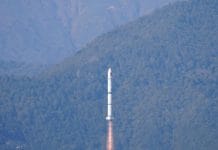The Council of Palm Oil Producing Countries (CPOPC) held the 25th Senior Officials Meeting (SOM25) and the 11th Ministerial Meeting (MM11) In Kuala Lumpur for two days, starting today (May 16).
In its statement, the Ministry of Plantation and Commodities (KPK) said Deputy Prime Minister and KPK Minister Datuk Seri Fadillah Yusof will chair MM11, tomorrow.
The SOM25 meeting was chaired by Deputy Secretary-General (Plantation and Commodities) Datuk Mad Zaidi Mohd Karli.
“This is in line with the decision of the 24th CPOPC Senior Officer Level Meeting on Dec 15, 2022 that Malaysia has been re-appointed as the chairman and host for SOM25 and MM11.
“This meeting was also attended by the Coordinating Minister of Indonesian Economic Affairs Airlangga Hartarto,” said the ministry.
Malaysia is the chairman of CPOPC for 2023 while SOM and MM are platforms for member countries to discuss the direction as well as examine the progress related to the main programs under the council.
Among the matters discussed include the Positive Palm Oil Campaign, the Global Framework for Principles of Sustainable Palm Oil (GFP SPO), the progress status of the implementation of studies under the CPOPC Scientific Committee, the Smallholder Development Program in addition to CPOPC administrative matters such as the budget and work plan 2023 as well as CPOPC membership status.
CPOPC is an intergovernmental organization established by Malaysia and Indonesia on Nov 21, 2015, to promote, develop and strengthen cooperation in palm oil cultivation and industry among palm oil producing countries.
According to the KPK, on March 28, 2023, Honduras submitted an instrument of ratification of the CPOPC Charter and officially became the third member of the council.
Three observer countries namely Colombia, Papua New Guinea and Ghana are still in the process of becoming full members of the CPOPC.
The council’s scope and functions include encouraging dialogue on the development of the palm industry among stakeholders in palm oil producing countries and improving the well-being of smallholders of the crop.
“At the same time, it also aims to develop and set the GFP SPO, encourage cooperation and investment in the development of sustainable and environmentally friendly oil palm cultivation areas,” he said.
This includes green economic areas, dealing with oil palm trade barriers, promoting cooperation in research, development and training as well as carrying out activities and functions deemed necessary to safeguard the interests of the industry.









